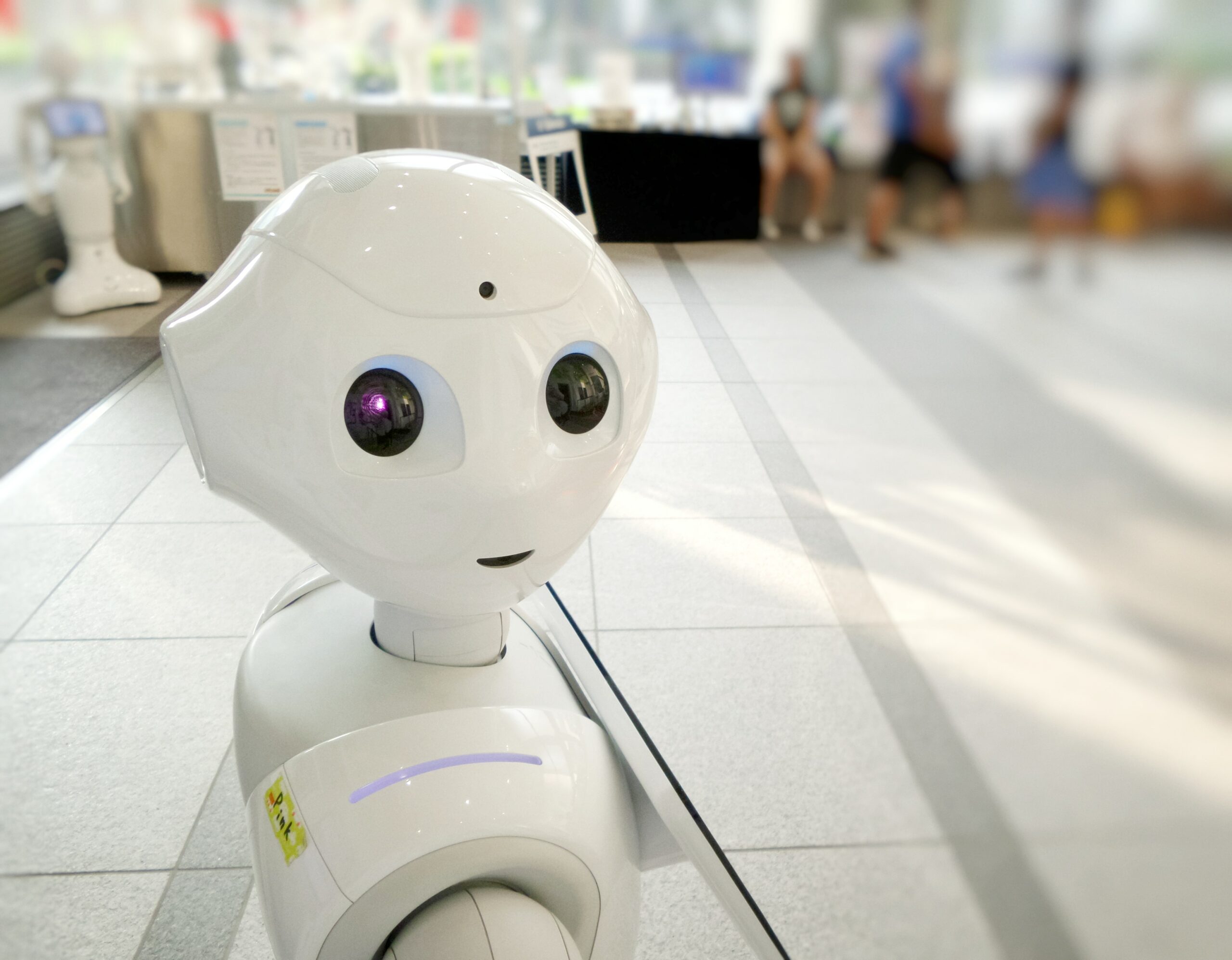The Future Of Sustainable Fashion Brands: A Glimpse Into Innovations And Latest Trends
High-tech textiles, futuristic manufacturing techniques, and big data to predict future trends… the future of sustainable fashion brands is bright and green. Learn all about the latest happenings in the fashion world and your role here.
According to a study by Gitnux, the textile industry alone is responsible for 10% of global carbon emissions, making it one of the most polluting industries worldwide. It’s high time we embrace the hazards of our conventional fashion industry and switch to sustainable fashion.

Sustainable fashion is a movement that seeks to minimize the negative social and environmental impacts of the fashion industry. It encompasses various aspects, including ethical sourcing, fair labor practices, reducing waste, and using eco-friendly materials. While sustainable fashion has gained momentum in recent years, the future holds even more promise as new technologies and innovative approaches are being adopted by fashion brands.
So, let’s dive into the exciting world of sustainable fashion and explore the cutting-edge innovations and trends shaping their future. This blog post will delve into remarkable advancements across its five key areas, showcasing the power of human creativity and technological prowess.
5 Trailblazing Innovations Propelling the Sustainable Fashion Brands World into the Future
Step into the vibrant world of sustainable fashion, where innovation sets the beat for a brighter, eco-conscious future. This ever-evolving landscape dances with awe-inspiring revolutions, unfurling remarkable innovations that redefine the very essence of the industry. Imagine materials that defy conventions, and manufacturing techniques that challenge the norm — it’s a symphony of creativity and limitless potential!
But wait, there’s more! Brace yourself for a captivating odyssey that will change the way you perceive, embrace, and celebrate fashion. It’s time to embark on this exhilarating adventure, where we paint a new canvas and redefine the very essence of style. Are you ready to join us as we explore the boundless horizons of sustainable fashion? Let’s step into this remarkable realm together and make waves in the world of style.
1. The Technological Marvels Transforming Fashion
In the era of rapid technological advancement, fashion has embraced innovation with open arms, giving rise to a fascinating realm of wearable tech. Integrating new technologies into garments and accessories, wearable tech is revolutionizing how we interact with fashion while driving sustainability forward.
One critical element of wearable tech is the integration of biometric sensors, which monitor physiological parameters like heart rate, body temperature, and activity levels. This seamless capture and analysis of data provide valuable insights into health and well-being, merging fashion with healthcare.
Solar-powered fabrics are another remarkable aspect of wearable tech, equipped with solar cells that convert sunlight into usable energy. These fabrics enable garments and accessories to generate electricity for charging devices and powering integrated functionalities, reducing reliance on conventional energy sources.
Fabrics monitoring air pollution levels or smart shoes generating electricity while walking showcase the fusion of fashion, functionality, and sustainability.
Benefits of Wearable Tech:
- Enhances functionality with features like smartwatches for convenience, fitness tracking, and contactless payments.
- Promotes energy efficiency and waste reduction.
- Aligns with a greener future and sustainable practices.
- Reduces electronic waste.
- Utilizes sustainable materials and production practices.

2. High-Tech Textiles Redefining Sustainability
The fashion industry is experiencing a sustainable revolution thanks to high-tech textiles! Let’s dive into these incredible innovations that are changing the game while preserving our planet.
Biofabrication Wonders
Using biofabrication techniques, high-tech textiles offer ethical and eco-friendly alternatives to traditional materials. Lab-grown leather, produced by culturing animal cells, provides a cruelty-free option without compromising quality or style.
For instance, mushroom-based textiles made from mycelium fibers offer a renewable resource with a lower environmental impact. These innovations challenge conventional manufacturing, reducing resource reliance and promoting a circular economy.
Plant-based Delights
Another avenue of exploration in high-tech textiles is plant-based fibers. Derived from renewable sources like bamboo, hemp, or pineapple leaves, these fibers offer sustainable alternatives to conventional textiles such as cotton.
Pineapple leaves have gained attention as a material for creating “pineapple leather,” which has been used by brands like Swiss Impact Store to produce stylish and eco-friendly handbags. This fusion of sustainable fashion and chic aesthetics showcases the incredible possibilities of high-tech textiles.
Benefits Of High-Tech Textiles:
High-tech textiles deliver a double dose of benefits: sustainability and stunning aesthetics.
- With significantly reduced environmental impact, these materials require fewer resources, emit fewer carbon emissions, and minimize waste during production.
- But that’s not all! Get ready for a burst of creativity—high-tech textiles offer endless opportunities for customization. Designers can create unique and innovative products that reflect their artistic vision.
- Think vibrant colors, intricate patterns, and extraordinary textures—all while staying committed to sustainability goals.
Subscribe to our newsletter and save!
Join the SIS community and get 10% off your next purchase.
3. Cutting-Edge Manufacturing Techniques
Cutting-edge manufacturing techniques, including automation, robotics, and 3D printing, revolutionise sustainable fashion production. Automation ensures precision and reduces waste by optimizing processes, while robotics enhances efficiency and flexibility. 3D printing enables customized designs, minimizes material waste, and facilitates on-demand production. These techniques offer great potential for reducing environmental impact, promoting customization, and shifting away from mass production in the fashion industry.
Several sustainable fashion brands have already embraced these manufacturing techniques, setting examples for the industry. For instance, Adidas has utilized 3D printing to create midsoles for its running shoes, reducing waste and enhancing performance.
Another notable example is Patagonia, which has implemented automation and robotics in its garment production to improve efficiency and reduce the ecological footprint of its products.
These brands showcase how cutting-edge manufacturing techniques can be integrated into sustainable fashion brands’ practices, demonstrating that technology and sustainability can go hand in hand.
4. AI and Big Data for Sustainable Fashion Brands
Welcome to the era of fashion, where sustainability meets artificial intelligence and big data, creating a powerful duo that transforms the industry for the better.
Optimizing Supply Chains with AI
Imagine having a crystal ball that predicts fashion trends and optimizes production schedules. That’s the magic of AI in the fashion supply chain!
By crunching massive amounts of data, AI algorithms help fashion brands streamline operations, minimize waste, and eliminate the headache of overstocking or understocking. It’s like having a genius planner that efficiently allocates resources, reducing excess inventory and unnecessary waste along the way.
Tracking the Carbon Footprint with Big Data
Have you ever wondered about the journey of a fashion product, from its raw materials to its end-of-life disposal? Big Data has got you covered! It’s like having a backstage pass to the entire lifecycle of a garment.
By collecting and analyzing data at every stage, sustainable fashion brands can identify areas of high environmental impact and develop strategies to reduce them. Big Data helps brands make informed decisions that minimize their carbon footprint, from tracking energy consumption and greenhouse gas emissions to water usage.

Measuring Progress and Driving Accountability
Data isn’t just numbers on a spreadsheet; it’s a powerful tool for measuring progress and fostering accountability.
With the help of Big Data analytics, fashion brands can set sustainability targets, monitor their performance, and make data-driven decisions. It’s like having a compass that guides brands toward their sustainability goals, ensuring transparency and continuous improvement.
By quantifying their efforts, brands can hold themselves accountable and inspire others in the industry to follow suit.
Understanding Consumer Preferences
What if fashion brands could read minds and create products that perfectly align with consumer preferences? While mind-reading may not be possible, analyzing consumer data comes close!
By diving into the vast ocean of consumer insights, brands can understand trends, anticipate demand, and develop products that resonate with sustainable choices. It’s like having a direct line to the hearts and minds of consumers, reducing the risk of overproduction and unsold inventory while embracing a circular and consumer-centric approach.
5. Collaborations and Cross-Industry Innovation
Collaborations between the fashion industry and other sectors have become crucial for driving sustainable solutions and fostering innovation. By partnering with diverse sectors, fashion brands can leverage expertise and resources to create impactful and environmentally friendly initiatives.
These collaborations have resulted in successful partnerships that showcase the potential of cross-industry innovation in promoting sustainability.
Here are a few examples:
- Collaborations between fashion and technology companies have led to the development of smart textiles, integrating wearable technology with sustainable fashion practices.
- Collaborations between fashion and material science industries have resulted in the creation of environmentally friendly textiles.
- Fashion brands partnering with waste management companies and recycling initiatives have implemented closed-loop systems, where materials are recycled and reintegrated into production.
Click here to read more about closed-loop systems and their importance in developing a sustainable industry.
From Runway to Responsibility: How Consumer Engagement Shapes the Future of Sustainable Fashion Brands
Once upon a time, in the world of sustainable fashion, the magic of teamwork was discovered. Innovations and technological advancements paved the way for a brighter, greener future. But guess what? You, dear consumer, held the key to unlocking this transformation.
Yes, you heard it right! Your choices have the power to drive change and make a difference.
Imagine stepping into a store, armed with knowledge and determination, and becoming a conscious shopper. Your support for sustainable fashion brands like the Swiss Impact Store sends a resounding message that inspires others to embrace sustainability.
But your role doesn’t end at the checking counter! You become an advocate for change, sharing the environmental impact of the fashion industry and raising awareness about sustainable alternatives. You ask questions, seeking transparency and accountability from brands. Choosing brands that align with your values encourages the industry to step up its game.
In this fashion adventure, you hold the power to shape an industry that reflects your values. Each purchase and brand you support becomes a brushstroke on the canvas of change. You become a fashion influencer by making informed choices and inspiring others to join the movement.

So, dear fashion enthusiast, embrace your role as a catalyst for change. Your conscious purchasing decisions and demand for accountability can weave a tapestry of sustainable fashion brands.
Join hands with the Swiss Impact Store to create a world where style and sustainability coexist, where every choice we make leaves a positive footprint. The future is in your hands, so let’s embark on this exciting journey together.

Making Sustainable Lifestyle Transformation Easy
SiS is more than a simple e-commerce platform. Our mission is to encourage, help, and inspire people to look for sustainable sourcing, reduce production waste, carbon footprint, and make conscious choices.
Whether you’re on the hunt for sustainable clothing, clean beauty, or ethical homeware, our team has done the hard work for you, carefully screening brands before ever being displayed at SIS.
So all that’s left for you is to shop with peace of mind.